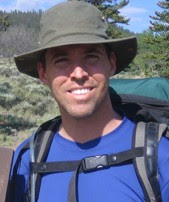The August 1, 2008 edition of the Journal of Immunology contains a fascinating article by the AAI’s new president, Olivera Finn. Dr. Finn has been a cancer researcher for more that 20 years, working on the mechanisms whereby the human immune system recognizes (or fails to recognize) tumors. She is the discoverer of MUC-1, a glycoprotein that is found in an altered form in many different kinds of cancers. Dr. Finn’s contributions to the science of immunology are impressive, but her article reveals a woman who thinks even more deeply about the roots of disease and wellness as they relate to immune system function throughout life.
For the last few years there have been suggestions in the literature that exposure to infectious agents early in life is essential for the prevention of allergies later in life. The hygiene hypothesis implies that rearing children in an environment that is too clean might cause them to have more allergic illnesses in adulthood. In he paper, Dr. Finn extends the hygiene hypothesis to include cancer as well. In her work, both in vitro and in vivo, patients who had certain infections at a young age developed protective immunity against both the infectious agent and to a group of antigens called tumor-associated antigens. As adults these individuals had lower incidence of cancer.
Have you ever been confronted by someone who says: “How can you believe in a God when the world is full of disease and suffering?” What if it turns out that there are reasons for infection and disease that are part of an even larger plan we know nothing about? While I am not suggesting that I know the whole reason, research like this makes me wonder if we are just seeing the tip of some infinite rationale?
Even more intriguing is Dr. Finn’s penultimate paragraph where she suggests that there might be a very small subset of proteins that could comprise a “universal vaccine” capable of preventing all forms of infectious disease, cancer, and autoimmune disease. Her theory is intriguing, though scientifically mind-bending. It makes me wonder, is this a form of divine providence, heretofore unknown? Time will tell.
Friday, August 22, 2008
Subscribe to:
Post Comments (Atom)

1 comment:
For the sake of argument, speaking from a non-evolutionary perspective more in harmony with Romans 5 & one-man origins, could this universal vaccine be something that was lost or "turned-off" at the fall? (kind of like looking for a useful alternative for parasites)
Post a Comment